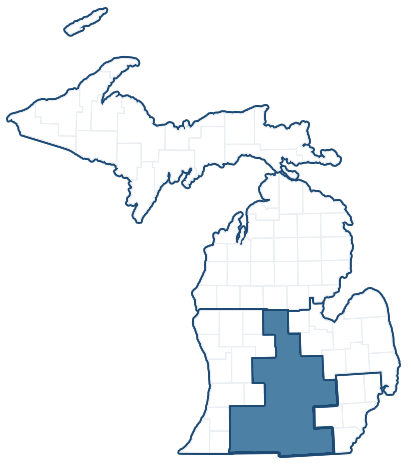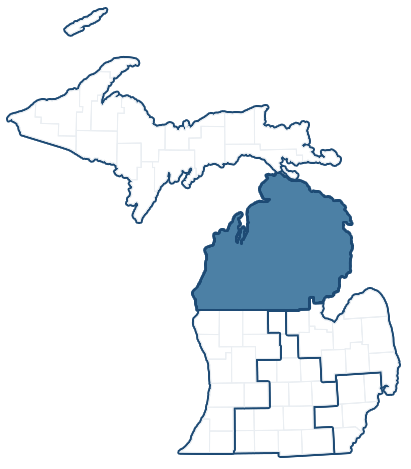Senate Passes Bipartisan Bill to Take Action on Gun Safety
Senator Stabenow Authors Nationwide Expansion of Community Mental Health and Addiction Services
Thursday, June 23, 2022WASHINGTON – U.S. Senator Debbie Stabenow (D-MI) today announced the U.S. Senate passed the Bipartisan Safer Communities Act to protect America’s children, keep our schools safe, and reduce the threat of violence across our country. Senator Debbie Stabenow and Senator Roy Blunt authored the initiative included in the bill to expand high-quality mental health and addiction services nationwide.
The state of Michigan, which began participating in Stabenow’s behavioral health initiative in 2021, will receive four additional years of funding under this legislation.
“We don’t have to live in a country where we read heartbreaking headlines every single day. After decades of inaction, this bipartisan legislation is an important step to combat gun violence, invest in schools, and create a better, safer nation,” said Senator Stabenow. “We know that more than half of all gun deaths are suicides and those with mental illness are more likely to be a victim of violence than perpetrate it. This bill builds on my transformational behavioral health care initiative to bring high-quality mental health and addiction services to communities across the country to get people the care they need as part of the health care system.”
The Bipartisan Safe Communities Act:
COMBATS GUN VIOLENCE
Supports Red Flag Laws
A new $750 million funding pool to help states create and administer red flag laws with sufficient due process protections that help ensure deadly weapons are kept out of the hands of individuals who a court has determined to be a significant danger to themselves or others. Funding from this pool can also support states’ mental health courts, drug courts, and veterans’ courts. The state of Michigan does not currently have red flag laws in place.
Protects Victims of Domestic Violence and Close the “Boyfriend Loophole”
Prohibits criminals convicted of a misdemeanor crime of domestic violence as part of a current or recent former dating relationship from purchasing or possessing firearms for five years after their first offense.
Creates a process for removal from the National Instant Criminal Background Check System five years after the completion of the sentence, only if there are no intervening prohibited crimes or other crimes of violence.
Clarifies the Definition of “Federally Licensed Firearms Dealer”
Clarifies which sellers need to register, conduct background checks, and keep appropriate records. Also increases the number of gun sales subject to the background checks system.
Enhances Review Process for Young Buyers
Requires more thorough background checks for buyers under 21, including contacts with state databases for juvenile criminal records and mental health history and local law enforcement.
The National Instant Criminal Background Check System will have up to three business days to conduct the initial enhanced search. If that search reveals a possibly disqualifying record, the system will have up to ten business days total to complete the investigation.
Provides additional funding to the National Instant Criminal Background Check System to administer the new process and grants to help states upgrade criminal and mental health records for the System.
Creates Penalties for Straw Purchasing
Makes federal straw purchasing and trafficking criminal offenses and allows prosecutors to target dangerous illegal gunrunners and stop the flow of illegal guns into our cities.
INVESTS IN MENTAL HEALTH AND ADDICTION SERVICES
Provides Funding to Expand Community Mental Health and Addiction Services Nationwide
The initiative authored by Senators Stabenow and Blunt provides every state with funding for Certified Community Behavioral Health Clinics in their communities—building on a successful effort that has shown results across the country. The clinics will be reimbursed through Medicaid for the full cost of providing services—the same way we fund community health centers for physical care. Senators Stabenow and Blunt created these community clinics through the Excellence in Mental Health and Addiction Treatment Act, which became law in 2014.
Certified Community Behavioral Health Clinics are required to provide a comprehensive set of services including 24/7/365 crisis services; outpatient mental health and substance abuse treatment services; immediate screenings, risk assessments, and diagnoses; and care coordination including partnerships with emergency rooms, law enforcement, and veterans’ groups.
A report authored by the National Council for Mental Wellbeing shows that these community clinics are increasing access to high-quality mental health and addiction treatment that is making a difference in the lives of thousands of people in communities across the country.
Statistics from the Department of Health and Human Services show that people who received services at these clinics:
· Had 63.2% fewer emergency department visits.
· Spent 60.3% less time in jails.
· Saw a 40.7% decrease in homelessness.
Also, 84% of these clinics either already provide direct services on site at elementary, middle, and high schools or plan to in the future.
Invests in Children’s Mental Health Services
The bill also invests approximately $1 billion to improve access to mental health services for children, youth, and families through the Medicaid program and Children’s Health Insurance Program; to increase access to mental health services for youth and families in crisis via telehealth; to expand provider training in mental health; and support suicide prevention, crisis and trauma intervention and recovery.
INVESTS IN SCHOOL SAFETY
Invests in School and Community Safety
Invests approximately $2 billion to expand mental health and supportive services in schools including: early identification and intervention programs, school-based mental health and wrap-around services, improvements to school-wide learning conditions, and school safety.
###
Next Article Previous Article
















